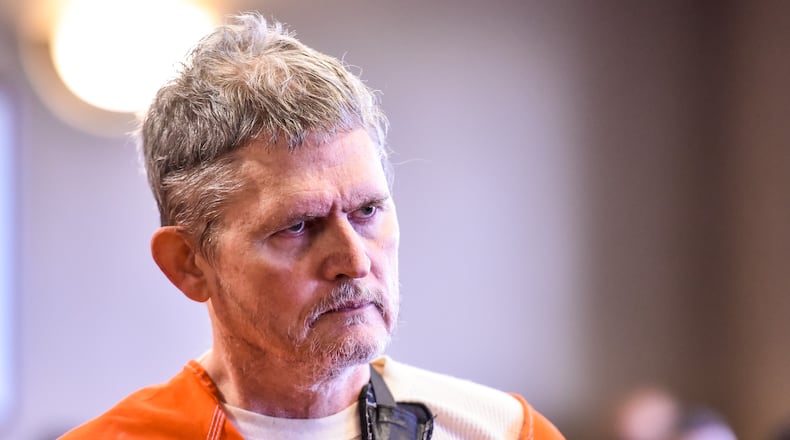MORE: Judge: Pacemaker data can be used at Middletown arson trial
Compton, who was free on his own recognizance, failed to show up for a court hearing in March 2018, just days before his trial in Butler County Common Pleas Court, and Judge Charles Pater issued a warrant for his arrest. In July, he was back in custody and again appeared before Pater, who set his bond at $100,000. He remains housed in the Butler County Jail.
The case is believed to be the first of its kind to use data from a beating heart as evidence. Last year, Pater ruled that evidence from Compton’s pacemaker could be presented at trial.
On Wednesday, new defense attorneys Matthew Dixon and Charles Conliff were back in court asking the judge to reconsider that ruling, citing physician-patient privilege rather than invasion of his Constitutional rights.
Middletown detectives said Compton gave statements that were “inconsistent” with evidence collected at the scene and from his medical device.
Compton, who has an artificial heart implant that uses an external pump, told police he was asleep when the fire started. When he awoke and saw the fire, he told police he packed some belongings in a suitcase and bags, broke the glass of his bedroom window with a cane and threw the bags and suitcase out the window before climbing out the window himself and taking the bags to his car.
Police then obtained a search warrant for all of the electronic data stored in Compton’s cardiac pacing device, according to court records.
The data taken from Compton’s pacemaker included his heart rate, pacer demand and cardiac rhythms before, during and after the fire.
MORE; $1 million bond for man charge with ‘ambush’ attack on Middletown officers
A cardiologist who reviewed that data determined “it is highly improbable Mr. Compton would have been able to collect, pack and remove the number of items from the house, exit his bedroom window and carry numerous large and heavy items to the front of his residence during the short period of time he has indicated due to his medical conditions,” according to court documents.
At Wednesday’s hearing, Conliff argued the pacemaker data was collected by medical technicians at a hospital for use by a physician and at no time did Compton waive his right to physician-patient privilege.
The defense argued the data is different from information taken from cell phones because it requires a specific medical procedure and it is intended for a specific use by a physician.
“It is stealing personal information,” Conliff said. “This is not information like on a cell phone that can be downloaded from the cloud. It is collected and stored for use of a physician.”
Assistant Butler County Prosecutors Jon Marshall and Kraig Chadrick argued the data was collected with a search warrant and at no time was it part of a privileged communication between Compton and his doctor.
Chadrick said the same system applies to getting evidence from cell phones.
“There are lots of things on people’s phones that people don’t want the police to have, we still have to get a search warrant,” he argued.
After Pater again denied the motion to quash the pacemaker data, the defense said it will appeal the decision to the 12th District Court of Appeals, which could take months for a decision. A new trial date has not been set.
About the Author

